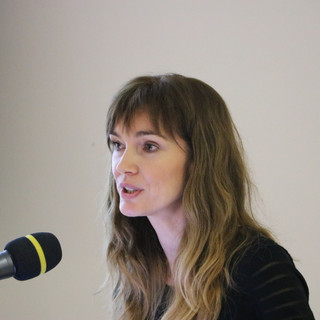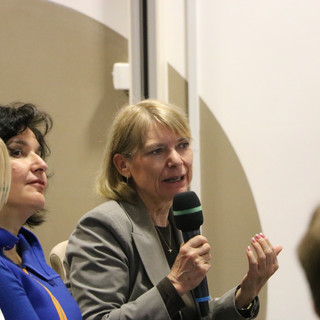International Conference: How to Comprehend Euroscepticism
- Dec 15, 2017
- 3 min read
International conference in Bratislava where findings of the CODES project were presented by researchers from participating countries and further discussed by practitioners, analysts, diplomats, and the EU institutions’ representatives.
The conference took place in Bratislava, Slovakia on 15 December 2017.
The conference involved 160 citizens, including 129 participants from Slovakia, 2 participants from Belgium, 2 participants from Hungary, 4 participants from Austria, 6 participants from Germany , 1 participant from Czechia, 2 participants from Bulgaria, 1 participants from Nedherland, 1 participant from United Kingdom, 1 participant from Latvia, 1 participant from Spain, 1 participant from Croatia, 1 participant from Russia, 1 participant from Ukraine, 1 participant from Albania, 3 participants from Macedonia, 2 participants from Norway 2 and 1 participant from Canada.

What can the European institutions do to combat Euroscepticism?
PROGRAMME
Keynote speech: Eurosceptic Voices: Beyond Party Systems, Across Civil Societies, Simona GUERRA, University of Leicester, United Kingdom
Panel I: Blaming Europe?
The first panel address the sources of Euroscepticism and the criticism of the EU from the EU level, level of the EU institutions. Speakers will reflect upon what EU citizens criticized on the EU institutional set-up and power sharing arrangements and what had been already done, how the EU institutions have already reacted to diminish the deficiencies. Panel discussion will also focused on questions as: What has the EP and the EC already undertook to improve the knowledge and understanding of the EU by citizens? Do people understand the EU better nowadays? What do people expect from the EU? What are the challenges the EU institutions are facing in order to maintain the popular support for the EU integration project? What can be address till 2019 EP elections? Is it enough or do we need to look at national level as well?
Speakers:
Eduard KUKAN, Member of the European Parliament
Meglena KUNEVA, European Party´s governing body and former Commissioner, Bulgaria
Cornelius ADEBAHR, Deutsche Gesellschaft für Auswärtige Politik, Germany (CODES)
Lubomir VASSILEV LUBOMIROV, Capital foundation, Bulgaria (CODES)
Moderator: Zuzana GABRIŽOVÁ, EURACTIV Slovakia
Discussant: Erik LÁŠTIC, Head of Department of Political Science, Comenius University in Bratislava

Panel II: Blaming Politicians?
The second panel will refocused the attention from the EU institutions towards the level of member states. Speakers will deal with the popular perceptions of the EU shaping via national discourse and actions. Panel discussion will also focused on questions as: Do actors at national level still play the role of gatekeeper on the EU communication? What is the role of the actors within the member state in building social trust towards the EU? What is the perspective of member states in communicating Europe, are they aware of necessity? How do people perceive the role of domestic actors vis a vis EU?
Speakers:
Ambassador Miroslav WLACHOVSKÝ, Head of Strategic Communication Unit, MFEA Slovakia
Antoaneta DIMITROVA, Leiden University, Netherlands
Christiana WEIDEL, The World of NGOs, Austria (CODES)
Pavol BABOŠ, Comenius University in Bratislava, Slovakia (CODES)
Moderator: Radovan GEIST, EURACTIV Slovakia
Discussant: Darina MALOVÁ, Department of Political Science, Comenius University in Bratislava

What are the most common Eurosceptic attitudes of citizens?
Why do we need to understand Euroscepticism?
BACKGROUND
The European Union is being increasingly criticized from several viewpoints and for various reasons. Absurd regulations, excessive red tape, and mismanaged migration crisis are just a few reasons mentioned by citizens.
The CODES project set out to reveal the reasons and arguments people use to justify their Eurosceptic attitudes in six countries: Austria, Bulgaria, Hungary, Germany, Latvia, and Slovakia. We asked ordinary citizens what do they loathe and why, but also what they appreciate about the EU. Subsequently we interviewed various community leaders across the six countries to obtain their perception of what the EU is doing good or wrong. The aim was to map the options community leaders have in addressing Euroscepticism on the local level.
Read interviews with Cornelius ADEBAHR (DGAP), Simona GUERRA (University of Leicester) and article about the main conclusions from the first stage of the CODES project HERE.




































Comments